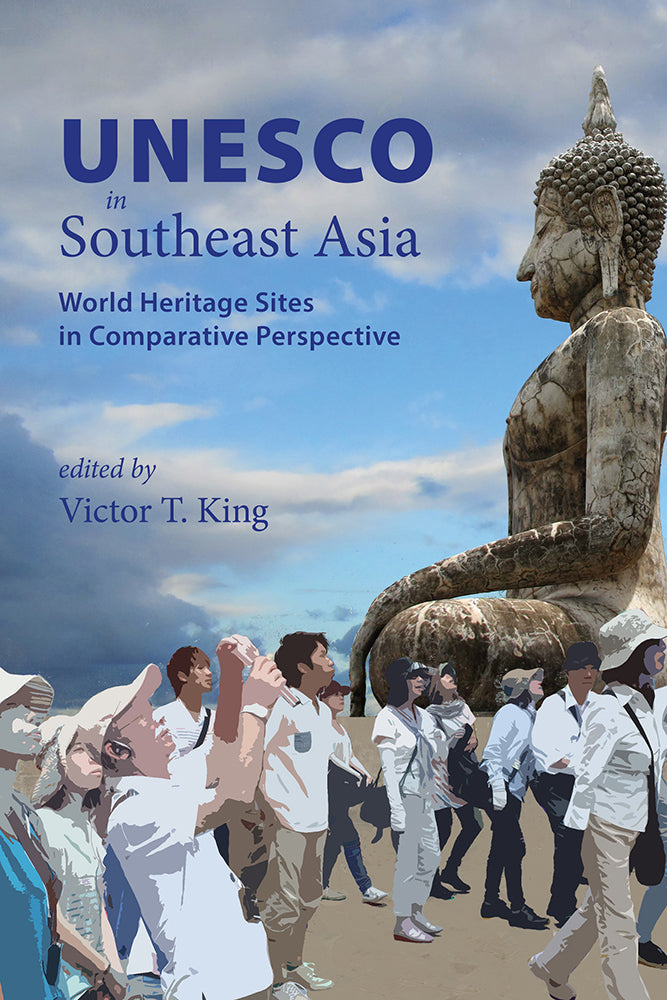UNESCO in Southeast Asia: World Heritage Sites in Comparative Perspective
$45.00 SGD
edited by Victor T. King
Southeast Asia’s 36 UNESCO World Heritage Sites make a significant contribution to their respective country’s national prestige and identity, international profile and tourism development plans. Yet, although much is known about some individual sites like Angkor and Borobudur, we know very little about all sites in comparative terms. This wide-ranging study explores how both cultural and natural sites are being managed, how they are coping with the conflicting pressures from the global, national and local levels, and points to best practices for their future conservation and development.
Some 20 sites across seven countries in the region are examined and placed in a historical, political, economic, environmental and cultural context. The contributors also focus on the tensions that exist between the often competing interests, understandings and agendas of the various stakeholders involved in these globally important sites. Although the importance of World Heritage Sites carries their significance and influence beyond their borders in that they are part of national and international flows of people, capital, ideas, images and values, they are also defined, bounded and localized spaces within which there are encounters, exchanges and conflicts.
The first volume to address issues raised by world heritage in Southeast Asia, it will be a key resource for academic researchers and for policy- and decision-makers in this field of studies. This volume on world heritage and tourism completes a trilogy of publications by Professor King on tourism-related issues. The two earlier volumes – Tourism in Southeast Asia: Challenges and New Directions (2009) and Heritage Tourism in Southeast Asia (2010) – were jointly published by NIAS Press and the University of Hawai'i Press.
"[This] is a much welcomed edited volume, which offers a broad overview of the management of UNESCO World Heritage Sites (WHS) in Southeast Asia. It presents a comparative approach to understanding the implications of UNESCO’s designation of WHS in Southeast Asia by exploring not only the transformations of the physical sites and their local communities, but also the wider local, national, and global eco-systems in which the sites are embedded. Based on in-depth analysis of a selection of WHS in seven Southeast Asian countries, the book offers a comparative approach to understand the variegated aspects of heritage representation, contestation, and management, bringing into questions issues of authenticity, nationalism, and identity, as well as heritage’s role in economic, social and community development, in Southeast Asia’s context." - Yunci Cai, ASEASUK Newsletter, no. 61 Autumn 2017
Victor (Terry) King is currently Emeritus Professor at the University of Leeds and Professorial Research Associate at the School of Oriental and African Studies, University of London. He has also recently been an Eminent Visiting Professor at Universiti Brunei Darussalam and a Visiting Professor at Chiang Mai University, Thailand. He has published widely in the sociology and anthropology of Southeast Asia and for several years has led an international research project on tourism in the region, this volume being the final fruits of this work.
Publication year: 2015
480 pp / 229mm x 152mm
17 maps, 35 figures, 15 tables
ISBN: 978-87-7694-174-1, Paperback
ISBN: 978-87-7694-173-4, Hardback
NIAS Press

